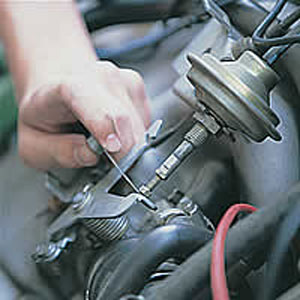Automotive Engineer
Tasks & duties

Automotive engineers may do some or all of the following:
-
discuss faults with customers
-
test drive vehicles to diagnose faults
-
inspect vehicles for faults
-
diagnose what is causing any faults
-
dismantle engines or other parts and systems requiring attention
-
order replacement parts
-
rebuild, repair or replace any faulty parts or systems
-
service vehicles
-
change vehicle lubricants (such as oil) and coolants (such as radiator water)
-
grease the necessary vehicle parts
-
tune engines so that vehicles run smoothly
-
carry out vehicle Warrant of Fitness or Certificate of Fitness checks
-
carry out performance modifications to vehicles
-
test drive repaired vehicles
Specialisations
With the correct accreditation automotive engineers may:
-
install and certify LPG and CNG fuel systems
-
certify modified vehicles to safety standards
-
certify new and used imported cars entering their first service
-
specialise in one sector of the automotive repair industry such as wheel alignment, air conditioning, transmissions and exhausts
Skills & knowledge

Automotive engineers need to have:
-
knowledge of motor vehicle engines, parts and systems
-
knowledge of motor vehicle electronic systems
-
knowledge of Ministry of Transport Warrant of Fitness and Certificate of Fitness regulations and safety standards
-
mechanical skills including the ability to diagnose mechanical faults
-
practical skills to use tools and equipment
-
good planning and time management skills
-
analytical and diagnostic skills
-
customer service skills
-
communication skills
-
business skills if self-employed
Entry requirements
To become an automotive engineer you need to complete an apprenticeship. These jobs do not usually require completion of secondary education, however further part-time study usually at Certificate III level, and on-the-job training offered as an apprenticeship, is required.
Secondary education
At least three years of secondary education with a good standard in English and maths is recommended. Other useful subjects include science, and workshop technology.
Tertiary education
Certificate III in Light Vehicle Mechanical Technology. This qualification is part of the Automotive Retail, Service and Repair Training Package. It reflects the role of individuals who perform a broad range of tasks on a variety of light vehicles in the automotive retail, service and repair industry.
Training on the job
To work on LPG and CNG fuel systems, and certify modified vehicles, automotive engineers need to complete additional training.
Video
Automotive Mechanic - Try it for 5
from WA career Centre on you tube
Related courses
Automotive Electrics and Electronics
Automotive Engineering
Vehicle Mechanics
For more information, please refer to myfuture.
Document Actions
